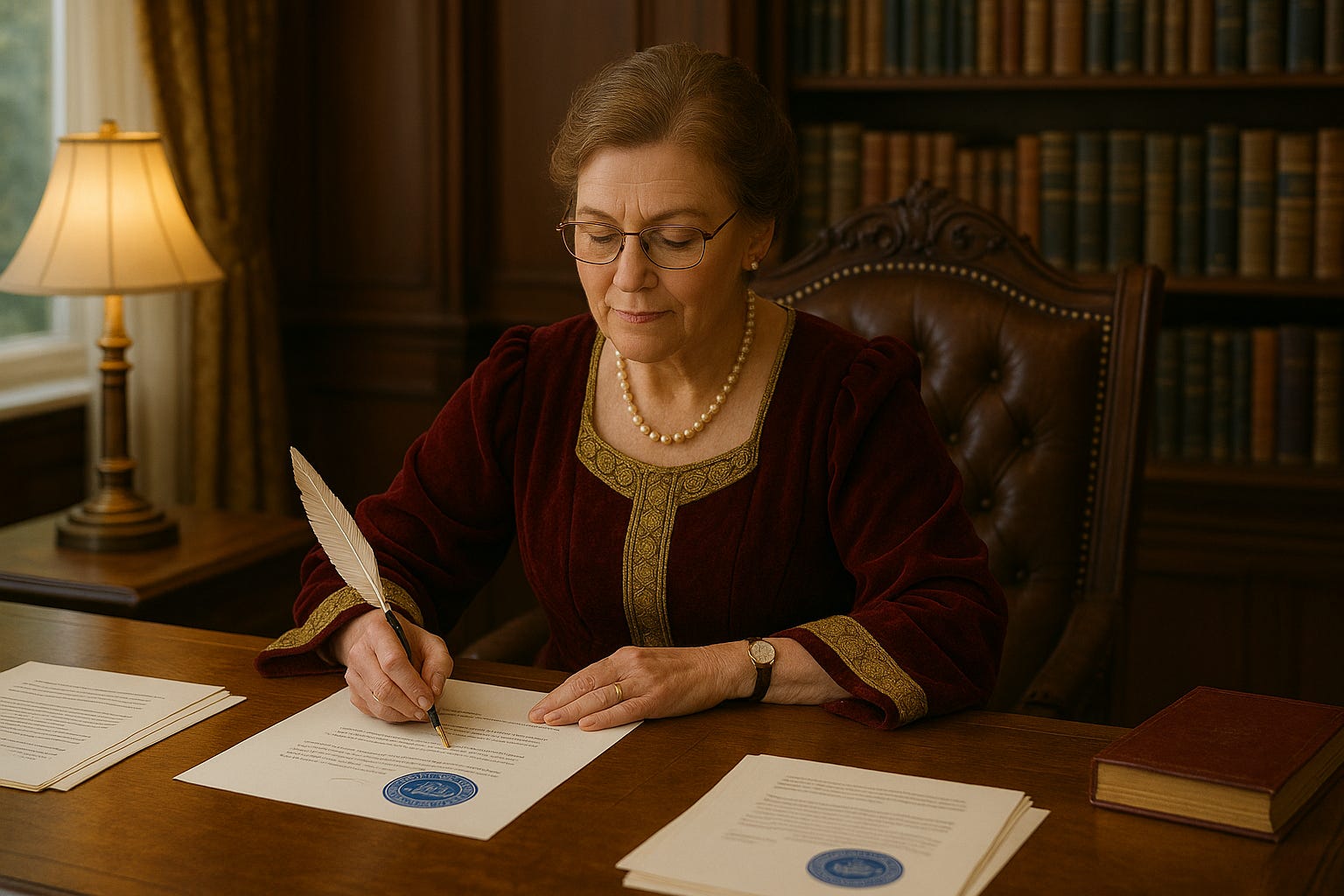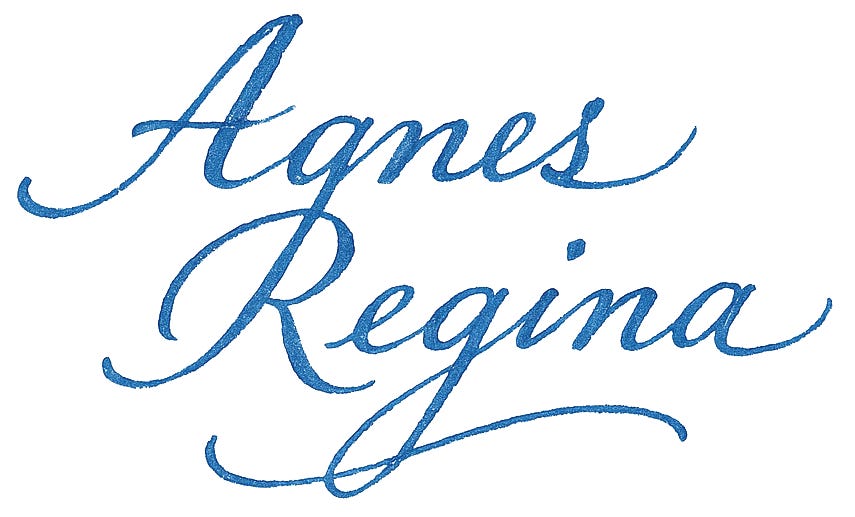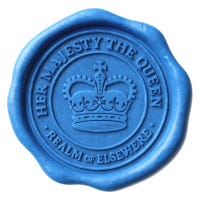In her quiet hours, Agnes - or perhaps I should say, Her Majesty - resolved to bring a touch of order to the ineffable. The Realm of Elsewhere, after all, though largely metaphysical in nature, still required its borders marked and its principles defined.
It was not that she ruled over any vast dominion of subjects or territories. In truth, her governance extended mostly over herself, and even there, the parliament of thought could be unruly. Yet, as she often remarked, “Self-governance is the first and most delicate form of monarchy.”
Thus, she undertook the writing of a guide—not to dictate law, but to cultivate language. For in the Realm of Elsewhere, words are not weapons or property, but instruments of attunement. The Queen understood that every realm is defined not by borders, but by the precision of its speech and the tenderness of its listening.
She called this document The Royal Compendium, and conceived it as a living charter: a record of the Realm’s founding ideas, governing moods, and subtle courtesies. Within its pages would be gathered the definitions, decrees, memorandum, meditations, proclamations and executive orders that arose from her reflections—each written less for command than for coherence.
For, as she would later inscribe in the margin of the first page:
“A royal personage must never be caught unprepared, especially for the unexpected therefore the unexpected must always be anticipated.”
Thus began the quiet labor of the Queen of Elsewhere: to articulate the invisible constitution of her own sovereignty, and in doing so, to chart the inner geography of all who dwell in this Commonwealth of Imagination.
The Royal Compendium of Elsewherean Terms
Entry I: Elsewherean
(pronounced els–WAIR–ee–un)
Part of Speech: noun, adjective
Plural: Elsewhereans
Definition
As noun:
A citizen or participant in the Commonwealth of Elsewhere, sworn—if only inwardly—to the governance of imagination, civility, and self-rule.
“Each Elsewherean is sovereign within their own heart.”
As adjective:
Pertaining to, characteristic of, or belonging to the spirit, manners, or aesthetic of the Commonwealth.
“The blue seal of the Queen bore an Elsewherean grace.”
As condition:
A state of being marked by poise, quiet discernment, and attentiveness to the invisible.
“She moved through the crowd with Elsewherean composure.”
Etymology
From Elsewhere—the imagined realm beyond the immediate and the known—combined with the suffix –an, denoting belonging or nativity.
Thus: Elsewherean—of or belonging to that other, finer place which is not apart from life but within it.
Usage Guidance
Citizens are advised that the term Elsewherean refers not merely to residence but to bearing.
One does not become Elsewherean by decree or certificate, but by manner of comportment: through courtesy, curiosity, and measured delight.
In formal correspondence, Elsewherean should be capitalized when referring to citizenship or official entities of the Commonwealth (e.g., Elsewherean Assembly, Elsewherean Order of Courtesy), and left lowercase when referring to general traits (e.g., an elsewherean gesture of kindness).
Her Majesty’s Note on Bearing
“An Elsewherean does not hurry truth, nor hoard it.
They bow before no crown save conscience, and lift no sword save wit.
Their speech is plain, their laughter gentle, and their silence deliberate.
To be Elsewherean is to remember that imagination is not a place of escape, but of return.”
Entry II: Elsewherean Courtesy
(pronounced els–WAIR–ee–un KUR–tuh–see)
Part of Speech: noun phrase
Synonyms: Civility, grace, mindfulness in motion.
Definition
A guiding principle of conduct within the Commonwealth of Elsewhere.
Elsewherean Courtesy is the practice of perceiving others through the lens of imagination, extending to all beings the dignity one hopes to receive.
It is civility not as ornament but as art form, and compassion expressed through measured presence.
“Courtesy is the choreography of respect.” — Agnes Regina
Doctrine
Courtesy begins where haste ends.
To hurry is to misjudge the invisible. Every Elsewherean act should contain a pause — a breath in which attention gathers before it is given.Courtesy is imagination applied to others.
It is the imaginative effort to see another person as complete, not as fragment or instrument.Courtesy refuses spectacle.
It seeks to harmonize, not to perform. The Elsewherean is known not by proclamation, but by the steadiness of their regard.Courtesy does not exclude firmness.
It is not submission but poise. An Elsewherean may disagree without diminishing, correct without humiliating, and depart without closing the door.Courtesy is contagious.
It invites in silence what argument cannot. It is the Queen’s preferred form of diplomacy.
Etymological Note
In older tongues, courtesy once meant the bearing proper to the court. In the Commonwealth of Elsewhere, the “court” refers not to a palace but to the inner precinct of the heart.
Thus, Elsewherean Courtesy is the courtly manner of the soul — the elegance of self-governance practiced in relation to others.
Proper Usage
An Elsewherean act of courtesy.
The Council of Courtesy met to discuss the restoration of public discourse.
She upheld the Elsewherean standard even among Naysayers.
In the Queen’s decrees, Elsewherean Courtesy is sometimes abbreviated as E.C., the foundational article of Elsewherean citizenship.
Her Majesty’s Reflection
“Courtesy is the quietest form of revolution.
It steadies the room, redeems the conversation,
and invites the divine to linger unnoticed.
When words grow sharp, let the Elsewherean bow — not in defeat, but in remembrance.”
CUSTODIAN OF THE COMMONWEALTH OF ELSEWHERE
THE QUEEN’S SUMMER PALACE
October 20, 2025
And so the compendium went on to contain her Majesty’s diary entries, stories, reflections, annotations, neologisms, quotes, sayings, proclamations, executive orders, royal decrees and memorandums.





